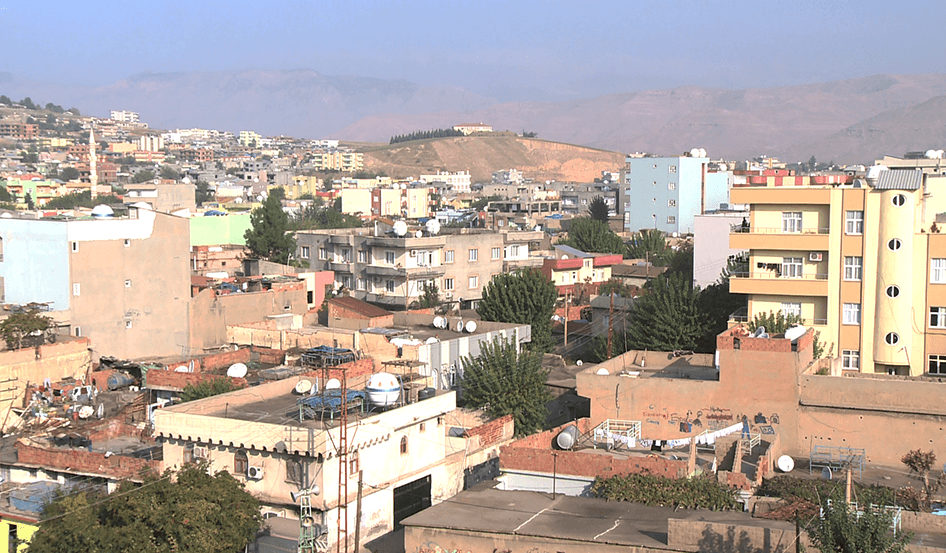The past two weeks has seen the arrest followed by deportation of three foreign journalists; crowds including a parliament member from President Recep Tayyip Erdoğan’s Justice and Development Party (AKP) attack the building housing Hürriyet, the leading newspaper critical of the government; a police raidon a large holding company that includes another opposition media group, and the remaining critical journalists at influential daily newspaper Milliyet fired.
While media freedom is always important in a democracy, the latest assault on the independent media deserves particular condemnation because it coincides with escalating violence throughout the country. The Kurdish peace process that offered so much hope just months ago is suspended, and in a period of less than two months an estimated 200 soldiers, police, Kurdish PKK fighters and civilians are dead.
With the resumption of deadly PKK attacks against military and police targets and the security forces’ curfew in southeast towns, operations against the PKK and aerial bombardment of PKK camps, critical and probing news reporting is of unparalleled importance to shed light on the stories parties to the conflict would rather we didn’t know. Such reporting can unearth abuses and sometimes even stop them from happening and protect lives.
But President Erdoğan considers scrutiny or criticism from media outlets and social media unacceptable. The prosecution and imprisonment of journalists and others for critical statements in Turkey is familiar. But in a dangerous new trend, Erdoğan and his followers inspire crowds to take direct action.
In one instance, Erdoğan turned on Hürriyet newspaper and its owner, Aydın Doğan, alleging that the paper misrepresented a statement in which he suggested that if his party had won an outright majority in the 7 June general election there would have been no descent into violence. Hours later, a crowd that included an AKP parliament member violently attacked the newspaper’s headquarters in Istanbul, breaking windows and trying to get into the building. The Istanbul chief prosecutor’s initial response was to initiate an investigationinto Hürriyet for “insulting President Erdogan.” Two days later there was another similar attack on the newspaper’s offices, drawing expressions of concern from the EU Council President, Donald Tusk, during a visit to Turkey.
The dizzying speed of Turkey’s descent into violence is not getting the media coverage it deserves.
With the second attack on Hürriyet came a huge assault on the political opposition, with crowds across the country attacking hundreds of offices of the pro-Kurdish left-leaning Peoples’ Democracy Party (HDP), which won 13 percent of the vote in the June general election. The attacks on the party offices as well as on Kurdish neighbourhoods in different towns are inextricably linked to Erdogan’s concerted post-election smear campaign against the party and its leader, Selahattin Demirtaş, accusing them of being terrorists—smears for which the horrific PKK attacks on police and soldiers are now being used to provide a convenient justification.
Mild government statements condemning violent attacks against media and political targets well after the event are insufficient. The government should make every effort to ensure acts of violence are fully investigated and those responsible brought to justice, and to send out a strong message that lynch mobs should not be part of Turkey’s political culture.
The dizzying speed and implications of Turkey’s descent into violence are not getting the scrutiny and media coverage they deserve domestically because too many media outlets are already muzzled and events such as the attack on the opposition party offices are barely reported in the pro-government press. Deporting international correspondents like the Dutch journalist Frederike Geerdink, expelled on Wednesday, and the two Vice News correspondents a week earlier sends out a strong message that the Turkish government is ready to prevent international media coverage and scrutiny of what is happening too.
If there were any doubt about the need in Turkey’s current climate to preserve space for the media to do its work, the unfolding situation in southeast Turkey—where Geerdink was based for several years—provides the test case. Since last Friday, security forces have imposed a blanket curfew on the 100,000 people of the city of Cizre, where a major military and police operation is under way against the PKK and where its youth wing is allegedly occupying some neighbourhoods. Cizre is cut off from the outside world and the legal basis for such a curfew is unclear. Reports from those in the town say much of its electricity supply has been cut and its population is forbidden from walking in the streets patrolled by Turkish army and police vehicles. Scores of people have been unable to get to the hospital for treatment.
Residents are reporting sounds of heavy shelling, explosions and gunfire. Kurdish parliamentarians in the city report that 21 civilians, among them many children, have been killed in shooting and shelling in circumstances we cannot currently determine. The interior minister said on Thursday that more than 30 PKK members have been killed and only one civilian.
Never has there been a greater need for independent and impartial media scrutiny, for journalists to shed light on the dark.









